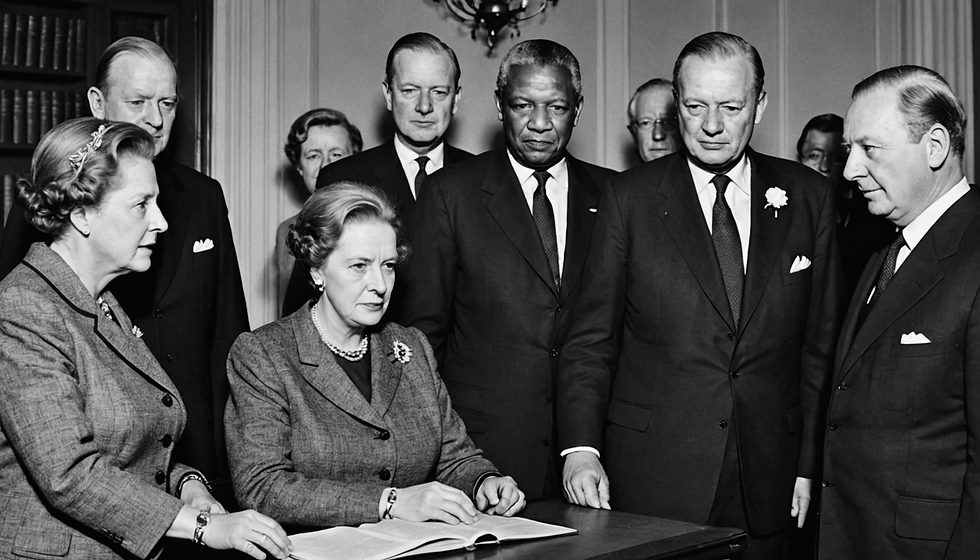Socratic reasoning/method in business, negotiations & decision-making
- R.M. Boylan

- Feb 18, 2025
- 3 min read
Updated: Mar 9, 2025
Socratic Reasoning

Socratic reasoning/method in business, negotiations & decision-making
Socratic reasoning, named after the ancient Greek philosopher Socrates, is a form of cooperative argumentative dialogue that stimulates critical thinking and illuminates ideas through asking and answering questions. It is characterized by a method of questioning that leads individuals to discover answers for themselves rather than simply providing them with information.
There are sales techniques that I have taught salesforces that use diluted versions of this method in sales. An example is SPIN selling. The method is logical, mathematical and Cartesian. When we build arguments, negotiations, plans, papers on these principles the logic sells itself. The use of this method also helps elevate an individual's critical reasoning on a subject making them more skilled at solving problems and surprises as they present themselves.
It adds logic and structure to decision-making, analysis and problem solving. I combine many tools in decision-making especially when it involves diverse multi-disciplinary groups. The risk-assessment decision matrix should be used with Socratic reasoning. I integrate economic impact models and bioethical elements. But this is not necessary.
Application in Various Fields
1. Pedagogy
In education, Socratic reasoning promotes active learning by encouraging students to engage in dialogue, critically analyze concepts, and develop their reasoning skills. Teachers pose open-ended questions that challenge students to think deeply and articulate their understanding.
2. Law
In the legal field, Socratic reasoning is employed in law schools through the Socratic method, where professors ask students probing questions about case law and legal principles. This approach helps students learn to think on their feet, analyze arguments, and develop robust legal reasoning.
3. Medicine
In medicine, Socratic reasoning can be used to foster critical thinking among medical students and professionals. By questioning assumptions and exploring the rationale behind diagnoses and treatment plans, practitioners can better understand complex medical scenarios and improve patient care.
4. Bioethics
In bioethics, the Socratic method encourages exploration of moral dilemmas by facilitating discussions that examine ethical principles and their implications. Through questioning, participants can uncover various perspectives and arrive at well-reasoned conclusions regarding ethical issues in healthcare.
Sequence of the Socratic Method
Questioning: The process begins with a question posed by the facilitator, aimed at a specific topic or assumption.
Clarification: Participants are encouraged to clarify their thoughts and reasoning behind their initial responses.
Challenge Assumptions: The facilitator questions the underlying assumptions of the responses, prompting deeper analysis.
Exploration of Consequences: Participants explore the implications and consequences of their ideas and beliefs.
Refinement of Ideas: Through further questioning and discussion, participants refine their ideas, leading to a more nuanced understanding.
Conclusion: The dialogue culminates in a conclusion that reflects a deeper understanding of the topic at hand.
Development of Critical Reasoning and Intelligence
The Socratic method fosters critical reasoning by challenging individuals to think independently, analyze their beliefs, and articulate their thoughts clearly. This process enhances cognitive skills, such as logic, reasoning, and problem-solving, which are essential for intelligent decision-making.
Benefits in Problem Solving
Using Socratic reasoning in problem-solving allows individuals to explore all possible solutions to a crisis before taking action. By systematically questioning each potential solution, one can identify strengths and weaknesses, anticipate consequences, and make informed decisions. This comprehensive approach minimizes the risk of oversight and promotes thorough analysis.
Application in Negotiations and Trade-offs
In negotiations, Socratic reasoning can be employed to uncover underlying interests and values of all parties involved. By asking targeted questions, negotiators can identify areas of common ground and potential trade-offs, leading to mutually beneficial outcomes. This method encourages transparency and collaboration, fostering an environment where creative solutions can emerge.
References
Boylan, R.M. (2006-2009). Conflicts and considerations comparing Abraham Maslow's hierarchy of needs to Jane Loevinger's model of ego development for assessing the level of development of a leader. M.A. Leadership Studies.
Paul, R., & Elder, L. (2006). Critical Thinking: The Art of Socratic Questioning. Foundation for Critical Thinking.
Gordon, M. (2005). The Socratic Method: A Practitioner’s Handbook. The Journal of Philosophy, Science & Law.
Barrett, T. (2010). Critically Engaging with the Socratic Method: A Guide for Educators. International Journal of Teaching and Learning in Higher Education.
Beauchamp, T. L., & Childress, J. F. (2013). Principles of Biomedical Ethics. Oxford University Press.





Comments